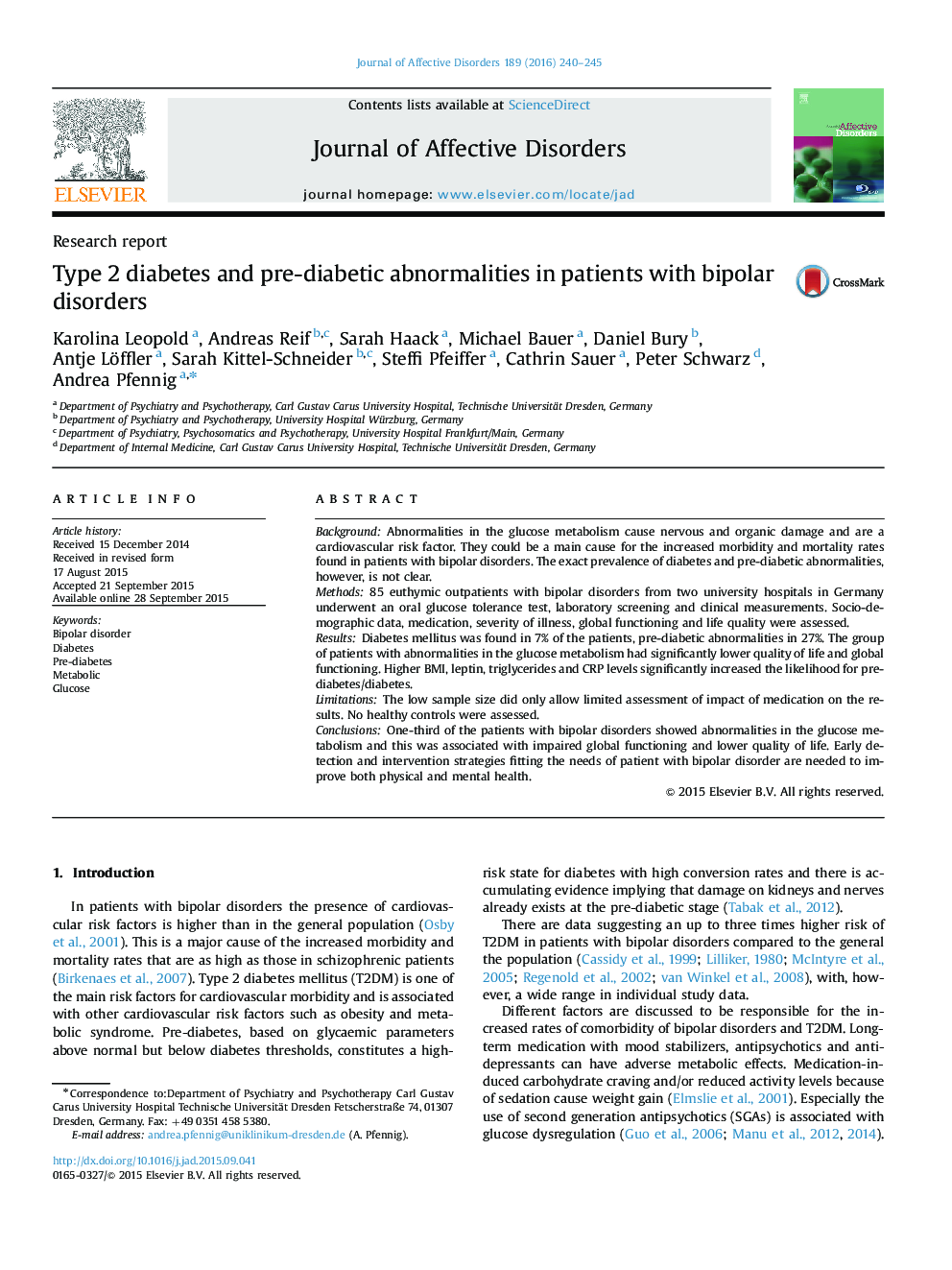| Article ID | Journal | Published Year | Pages | File Type |
|---|---|---|---|---|
| 6230892 | Journal of Affective Disorders | 2016 | 6 Pages |
â¢One-third of bipolar patients showed abnormalities in glucose metabolism.â¢Abnormalities were associated with impaired global functioning and quality of life.â¢Specific tailored early detection and intervention strategies are needed.
BackgroundAbnormalities in the glucose metabolism cause nervous and organic damage and are a cardiovascular risk factor. They could be a main cause for the increased morbidity and mortality rates found in patients with bipolar disorders. The exact prevalence of diabetes and pre-diabetic abnormalities, however, is not clear.Methods85 euthymic outpatients with bipolar disorders from two university hospitals in Germany underwent an oral glucose tolerance test, laboratory screening and clinical measurements. Socio-demographic data, medication, severity of illness, global functioning and life quality were assessed.ResultsDiabetes mellitus was found in 7% of the patients, pre-diabetic abnormalities in 27%. The group of patients with abnormalities in the glucose metabolism had significantly lower quality of life and global functioning. Higher BMI, leptin, triglycerides and CRP levels significantly increased the likelihood for pre-diabetes/diabetes.LimitationsThe low sample size did only allow limited assessment of impact of medication on the results. No healthy controls were assessed.ConclusionsOne-third of the patients with bipolar disorders showed abnormalities in the glucose metabolism and this was associated with impaired global functioning and lower quality of life. Early detection and intervention strategies fitting the needs of patient with bipolar disorder are needed to improve both physical and mental health.
